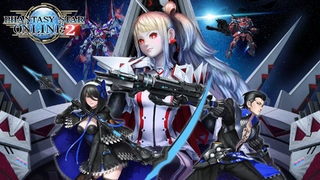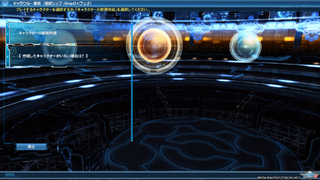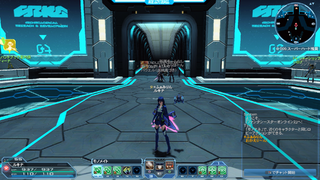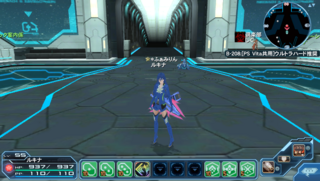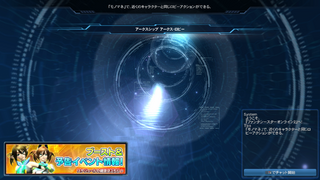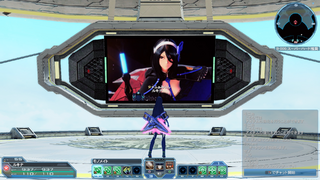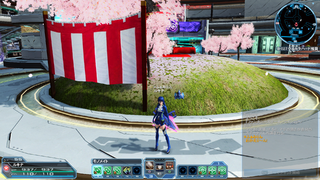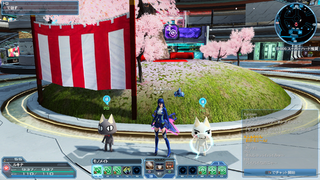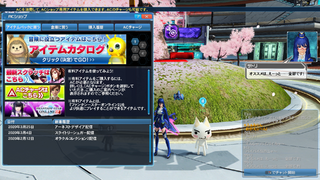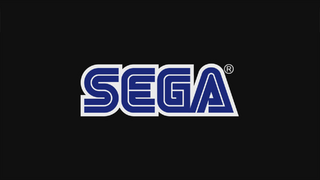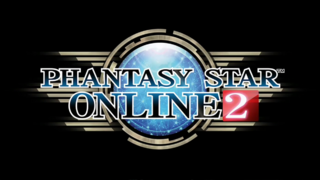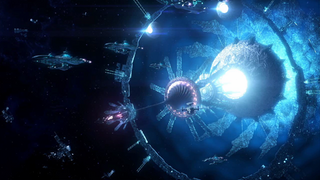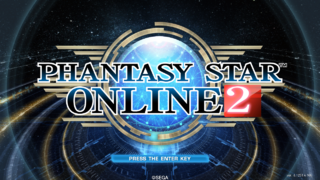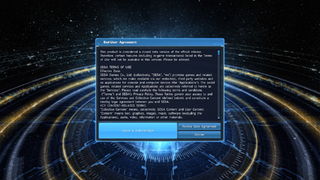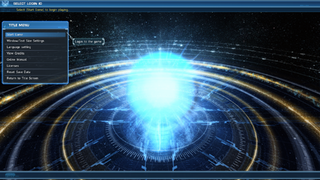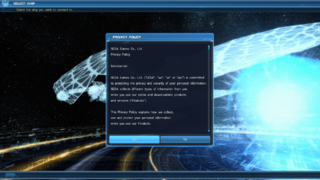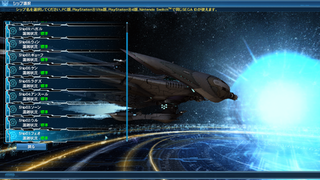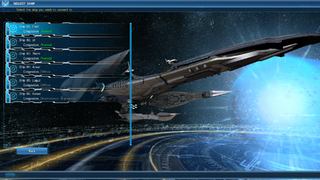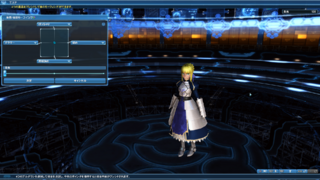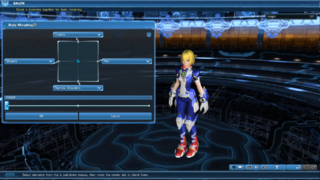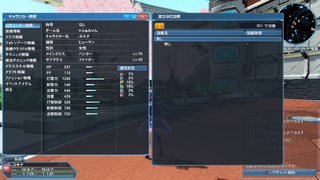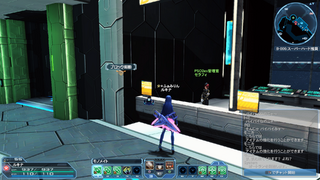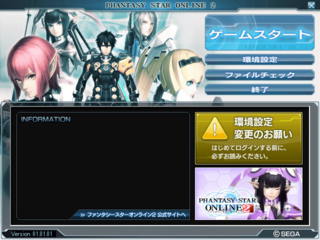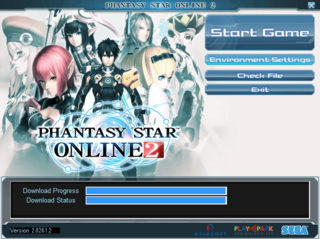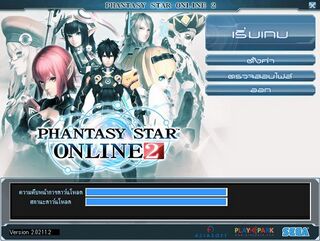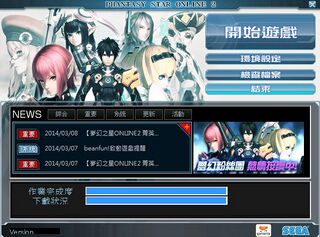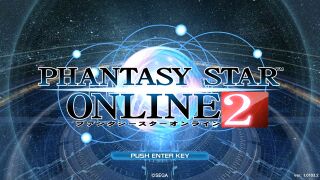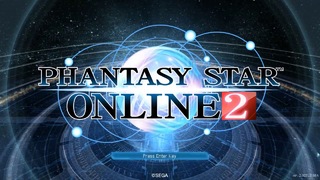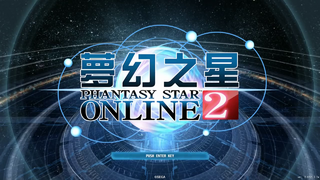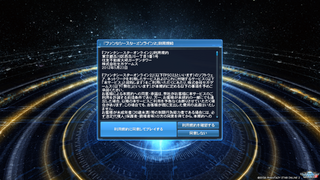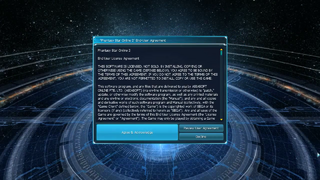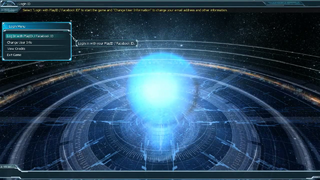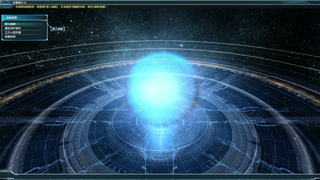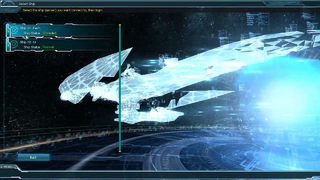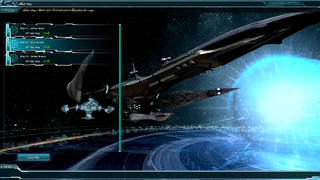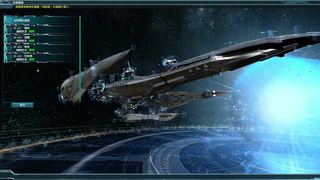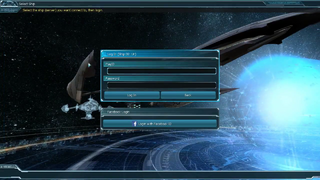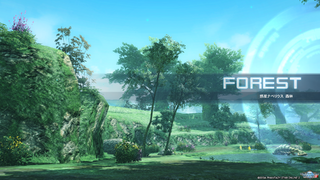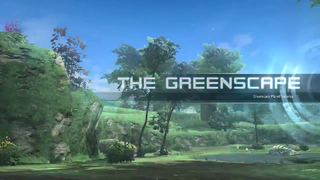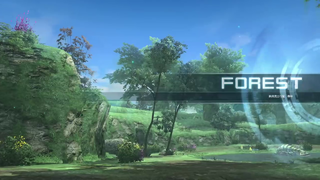- Back to: Phantasy Star Online 2.
Version Comparison (Japanese)
The following section covers differences present between the various console releases of Phantasy Star Online 2's Japanese release.
NOTE: Due to the ever-evolving nature of the game some of these comparison shots may not reflect the content of the latest version of the game.
Launcher
<div class="bobtransform" style="transform:scale(1,Expression error: Unexpected < operator.); transform-origin:0% 0%; !important;">
<div style="width:320px; height:Expression error: Unexpected < operator.px;">
320px
|
| PC & Cloud (PC version)
|
<div class="bobtransform" style="transform:scale(1,Expression error: Unexpected < operator.); transform-origin:0% 0%; !important;">
<div style="width:320px; height:Expression error: Unexpected < operator.px;">
320px
|
| Cloud (Nintendo Switch Version)
|
The PC version of Phantasy Star Online 2 uses a launcher for launching either the normal client or Phantasy Star Online 2 Cloud. Updates are downloaded and installed via this launcher, and some of the game's settings can be also configured.
The Nintendo Switch version of Phantasy Star Online 2 Cloud uses a more basic launcher that lets players start the game, check their connection to the server, or visit the game's website. No other version of Phantasy Star Online 2 makes use of a launcher.
Startup Image
|
|
| PlayStation 4 & PlayStation Vita
|
The PlayStation 4 and PlayStation Vita versions show a startup image while the game initialises and prepares to start. No other version of Phantasy Star Online 2 makes use of a startup image.
Title Screen
<div class="bobtransform" style="transform:scale(1,Expression error: Unexpected < operator.); transform-origin:0% 0%; !important;">
<div style="width:320px; height:Expression error: Unexpected < operator.px;">
320px
|
| PC
|
<div class="bobtransform" style="transform:scale(1,Expression error: Unexpected < operator.); transform-origin:0% 0%; !important;">
<div style="width:320px; height:Expression error: Unexpected < operator.px;">
320px
|
| PlayStation 4
|
<div class="bobtransform" style="transform:scale(1,Expression error: Unexpected < operator.); transform-origin:0% 0%; !important;">
<div style="width:320px; height:Expression error: Unexpected < operator.px;">
320px
|
| PlayStation Vita
|
<div class="bobtransform" style="transform:scale(1,Expression error: Unexpected < operator.); transform-origin:0% 0%; !important;">
<div style="width:320px; height:Expression error: Unexpected < operator.px;">
320px
|
| Cloud
|
The title screen differs slightly between each version. Specifically, only the PC version displays "PRESS THE ENTER KEY" prompt (even if a controller is plugged in and being used), while the PlayStation 4 and Cloud versions display "PRESS ANY BUTTON" instead.
The PlayStation Vita version is the only version to display "PRESS START BUTTON". Phantasy Star Online 2 Cloud is the only version with its own unique logo.
<div class="bobtransform" style="transform:scale(1,Expression error: Unexpected < operator.); transform-origin:0% 0%; !important;">
<div style="width:320px; height:Expression error: Unexpected < operator.px;">
320px
|
| PC
|
<div class="bobtransform" style="transform:scale(1,Expression error: Unexpected < operator.); transform-origin:0% 0%; !important;">
<div style="width:320px; height:Expression error: Unexpected < operator.px;">
320px
|
| PlayStation 4
|
<div class="bobtransform" style="transform:scale(1,Expression error: Unexpected < operator.); transform-origin:0% 0%; !important;">
<div style="width:320px; height:Expression error: Unexpected < operator.px;">
320px
|
| PlayStation Vita
|
<div class="bobtransform" style="transform:scale(1,Expression error: Unexpected < operator.); transform-origin:0% 0%; !important;">
<div style="width:320px; height:Expression error: Unexpected < operator.px;">
320px
|
| Cloud
|
The PlayStation 4 and PlayStation Vita versions lets players access an offline version of the Character Creator as well as the online manual from the Title Menu.
On the PC and Cloud versions, the online manual is accessible from the Support Menu that appears as an option after the player selects a ship.
The PlayStation Vita also has a Character Portrait mode accessible from the Title Menu that makes use of its augmented reality features. It also does not display the tooltips that all the other versions show for each menu item.
The Cloud version lacks the "Exit Game" option.
Ship Selection
<div class="bobtransform" style="transform:scale(1,Expression error: Unexpected < operator.); transform-origin:0% 0%; !important;">
<div style="width:320px; height:Expression error: Unexpected < operator.px;">
320px
|
| PC, PlayStation 4 & Cloud
|
<div class="bobtransform" style="transform:scale(1,Expression error: Unexpected < operator.); transform-origin:0% 0%; !important;">
<div style="width:320px; height:Expression error: Unexpected < operator.px;">
320px
|
| PlayStation Vita
|
The PlayStation Vita's Ship selection screen differs greatly from the other versions in that it uses a fixed camera perspective, and the ship graphics are simple 2D sprites instead of the full 3D models seen in the other versions.
Character Selection
|
|
| PC, PlayStation 4 & Cloud
|
<div class="bobtransform" style="transform:scale(1,Expression error: Unexpected < operator.); transform-origin:0% 0%; !important;">
<div style="width:320px; height:Expression error: Unexpected < operator.px;">
320px
|
| PlayStation Vita
|
The Character Selection screen on the PlayStation Vita version differs greatly from that used in other versions of the game.
Easy Login
<div class="bobtransform" style="transform:scale(1,Expression error: Unexpected < operator.); transform-origin:0% 0%; !important;">
<div style="width:320px; height:Expression error: Unexpected < operator.px;">
320px
|
| PlayStation 4 & Cloud (Nintendo Switch version)
|
The PlayStation 4 and the Nintendo Switch version of Phantasy Star Online 2 Cloud support Easy Login, a way to allow players to play the game without using a SEGA ID. However, there are a few important things to note regarding Easy Login:
- It is possible to create or link to a SEGA ID after starting a game with Easy Login.
- PlayStation 4 players using Easy Login can only purchase AC via the PlayStation Store using a Japanese PlayStation Network account. Nintendo Switch Cloud players can only purchase AC from the Nintendo eShop using a Japanese Nintendo Account or via LINE Pay.
- Players using Easy Login cannot use their characters on other platforms or link to Phantasy Star Online 2 es until they create or link to a SEGA ID.
- There is no One-Time Password support when Easy Login is being used.
Login Screen
<div class="bobtransform" style="transform:scale(1,Expression error: Unexpected < operator.); transform-origin:0% 0%; !important;">
<div style="width:320px; height:Expression error: Unexpected < operator.px;">
320px
|
| PC
|
|
|
| PlayStation 4 & PlayStation Vita
|
|
|
| Cloud (Nintendo Switch version)
|
The PlayStation 4 and PlayStation Vita versions have a one-time login screen which allows players to (irreversibly) link their SEGA ID to a single PlayStation Network account of any region. Subsequent logins as a result are automatic on PlayStation 4 and PlayStation Vita.
Note that linking a SEGA ID to a non-Japanese PlayStation Network account will render the player unable to purchase AC via the PlayStation Store, but otherwise has no ill effects.
On the Nintendo Switch Cloud version, players not using Easy Login get a Login screen identical to the PC version except the option to remember passwords is also made available. The PC Cloud version lacks this screen as players login to their SEGA ID using the game's launcher.
In-Game UI
|
|
| PC, PlayStation 4 & Cloud
|
The game's GUI was drastically modified in the PlayStation Vita version to better fit the screen.
Loading Screen
|
|
| PC, PlayStation 4 & Cloud
|
<div class="bobtransform" style="transform:scale(1,Expression error: Unexpected < operator.); transform-origin:0% 0%; !important;">
<div style="width:320px; height:Expression error: Unexpected < operator.px;">
320px
|
| PlayStation Vita
|
The PlayStation Vita version has a slightly different loading screen compared to the other versions, as the in-game advertisement is missing and the PlayStation Vita status bar is exposed to show system information like the battery level and time.
In-Game Monitors
|
|
| PC, PlayStation 4 & Cloud
|
<div class="bobtransform" style="transform:scale(1,Expression error: Unexpected < operator.); transform-origin:0% 0%; !important;">
<div style="width:320px; height:Expression error: Unexpected < operator.px;">
320px
|
| PlayStation Vita
|
The in-game monitors found in the Shop Area that normally display videos for events and promotions are replaced with a static image on the PlayStation Vita version.
Toro and Kuro
|
|
| PlayStation 4 & PlayStation Vita
|
The PlayStation 4 and PlayStation Vita versions feature Sony's Japanese mascots Toro and Kuro in the Shop Area. These characters are not present in any other version of the game though their Partner Card and Costume can be obtained and used in other versions of the game.
Client Orders from Toro and Kuro can be completed on other platforms, but can only be accepted or handed in using a PlayStation Vita or PlayStation 4.
AC Shop and AC Scratch UIs
|
|
| PC, PlayStation 4 & Cloud
|
<div class="bobtransform" style="transform:scale(1,Expression error: Unexpected < operator.); transform-origin:0% 0%; !important;">
<div style="width:320px; height:Expression error: Unexpected < operator.px;">
320px
|
| PlayStation Vita
|
<div class="bobtransform" style="transform:scale(1,Expression error: Unexpected < operator.); transform-origin:0% 0%; !important;">
<div style="width:320px; height:Expression error: Unexpected < operator.px;">
320px
|
| PC, PlayStation 4 & Cloud
|
<div class="bobtransform" style="transform:scale(1,Expression error: Unexpected < operator.); transform-origin:0% 0%; !important;">
<div style="width:320px; height:Expression error: Unexpected < operator.px;">
320px
|
| PlayStation Vita
|
The AC Shop and AC Scratch Menu both have a vastly different layout on the PlayStation Vita version.
Music Discs
<div class="bobtransform" style="transform:scale(1,Expression error: Unexpected < operator.); transform-origin:0% 0%; !important;">
<div style="width:320px; height:Expression error: Unexpected < operator.px;">
320px
|
| Cloud
|
Certain music discs cannot be played on the Cloud version as a result of licensing restrictions.
Additional differences
- PlayStation button prompts can be turned on in the PC version, but not on the Cloud version.
- The Nintendo Switch Cloud version is the only version of the game that contains Nintendo button prompts.
- The "3-Button Type" control scheme is not available on the PlayStation Vita version.
- Detailed graphics and rendering settings can be adjusted on the PC and PlayStation 4 versions, but not on the Cloud or PlayStation Vita versions.
- The size of the game's User Interface can be adjusted on the PC and PlayStation 4 versions, namely via the game's launcher in the former and the Options menu in the latter. The PlayStation Vita and Cloud versions, however, do not support this option.
- The PlayStation 4 version has the ability to turn dynamic resolution scaling off or on. Dynamic resolution scaling is not found on any other platform.
- As Phantasy Star Online 2 Cloud runs using a cloud-hosted game client no patch updates to the actual game are required from the player's end.
- Players on Phantasy Star Online 2 Cloud are disconnected after 30 minutes of inactivity, or if the network conditions are too poor.
- Unlike the regular PC client, the PC version of Phantasy Star Online 2 Cloud does not allow for copying and pasting of text nor does it produce any chat-related logs.
Regional Comparisons (North American)
The following is a comparison between the Japanese version and the 2020 North American release.
NOTE: The screenshots used for comparison are from a work in progress and a different platform. This comparison is subject to change.
Opening Videos
<div class="bobtransform" style="transform:scale(1,Expression error: Unexpected < operator.); transform-origin:0% 0%; !important;">
<div style="width:320px; height:Expression error: Unexpected < operator.px;">
320px
|
| Japanese (PC, PlayStation 4, PlayStation Vita, Cloud)
|
|
|
| North American (Xbox One)
|
The light blue Japanese SEGA logo has been updated to be the dark blue SEGA logo used in Western SEGA game releases. Notably like the Japanese version, the logo animation is the previous SEGA logo animation used since 2005 up to 2014. This change is applied consistently to all instances the SEGA logo appears.
<div class="bobtransform" style="transform:scale(1,Expression error: Unexpected < operator.); transform-origin:0% 0%; !important;">
<div style="width:320px; height:Expression error: Unexpected < operator.px;">
320px
|
| Japanese (PC, PlayStation 4, PlayStation Vita, Cloud)
|
|
|
| North American (Xbox One)
|
The new English logo (based off of the Japanese logo used since Episode 4's release) is retroactively inserted into the game's openings even in Openings that used the original logo used between Episode 1-3. Notably, with Opening 1, the way the new English logo was inserted results in the background fading much sooner than it does in order to obscure the shot of the old logo being formed. In addition, the North American version cycles through its opening from oldest-to-newest as opposed to newest-to-oldest like in the Japanese version (as of the writing of this entry, the Vita opening is the newest intro available in the NA version).
<div class="bobtransform" style="transform:scale(1,Expression error: Unexpected < operator.); transform-origin:0% 0%; !important;">
<div style="width:320px; height:Expression error: Unexpected < operator.px;">
320px
|
| Japanese (PC, PlayStation 4, PlayStation Vita, Cloud)
|
|
|
| North American (Xbox One)
|
<div class="bobtransform" style="transform:scale(1,Expression error: Unexpected < operator.); transform-origin:0% 0%; !important;">
<div style="width:320px; height:Expression error: Unexpected < operator.px;">
320px
|
| Japanese (PC, PlayStation 4, PlayStation Vita, Cloud)
|
|
|
| North American (Xbox One)
|
The North American version of Opening 2 has the Credits and "Phantasy Star 25th Anniversary" logo removed from the game's Opening.
Title Screen
<div class="bobtransform" style="transform:scale(1,Expression error: Unexpected < operator.); transform-origin:0% 0%; !important;">
<div style="width:320px; height:Expression error: Unexpected < operator.px;">
320px
|
| Japanese (PC)
|
<div class="bobtransform" style="transform:scale(1,Expression error: Unexpected < operator.); transform-origin:0% 0%; !important;">
<div style="width:320px; height:Expression error: Unexpected < operator.px;">
320px
|
| Japanese (PlayStation 4)
|
<div class="bobtransform" style="transform:scale(1,Expression error: Unexpected < operator.); transform-origin:0% 0%; !important;">
<div style="width:320px; height:Expression error: Unexpected < operator.px;">
320px
|
| Japanese (PlayStation Vita)
|
|
|
| North American (Xbox One)
|
The North American version's title screen is similar to the latest Japanese versions, but the game's logo has been modified to use the North American logo. The North American Xbox One version uses a "PRESS A BUTTON" prompt as opposed to any of the other prompts shown in the Japanese versions. In addition, the user's current GamerTag is also displayed at the bottom left and the option to switch accounts from the title screen has been added.
Terms of Service
<div class="bobtransform" style="transform:scale(1,Expression error: Unexpected < operator.); transform-origin:0% 0%; !important;">
<div style="width:320px; height:Expression error: Unexpected < operator.px;">
320px
|
| Japanese (PC, PlayStation 4, PlayStation Vita, Cloud)
|
|
|
| North American (Xbox One)
|
The Terms of Service has been updated to be in English.
<div class="bobtransform" style="transform:scale(1,Expression error: Unexpected < operator.); transform-origin:0% 0%; !important;">
<div style="width:320px; height:Expression error: Unexpected < operator.px;">
320px
|
| Japanese (PC)
|
<div class="bobtransform" style="transform:scale(1,Expression error: Unexpected < operator.); transform-origin:0% 0%; !important;">
<div style="width:320px; height:Expression error: Unexpected < operator.px;">
320px
|
| Japanese (PlayStation 4)
|
|
|
| North American (Xbox One)
|
The Title Menu options differ from the Japanese version in that it lacks the "Link to PSO2es" and "Change SEGA ID User Information" options, as these two options are for features only available in the Japanese version.
Much like the Japanese PlayStation versions, the North American Xbox One version has an "Online Manual" option accessible from the Title Menu and has an option to view the open-source licenses for libraries used in the game.
It also includes several new options unavailable in the Japanese versions entirely, including the ability to change the text and voice languages and reset the Xbox One save data.
Adjustment of the user interface size (including text) was moved to the Title Menu, whereas the same setting can be found in the launcher (PC) or the in-game Main Menu (PlayStation 4) on the Japanese versions.
Privacy Policy
|
|
| North American (Xbox One)
|
A privacy policy screen not present in the Japanese version has been added prior to the Ship Selection screen.
Ship Selection
|
|
| Japanese (PC, PlayStation 4, Cloud)
|
|
|
| North American (Xbox One)
|
There are less ships in the North American version. The North American version also sorts ships in ascending order, while the Japanese versions sort them in descending order.
Login Screen
<div class="bobtransform" style="transform:scale(1,Expression error: Unexpected < operator.); transform-origin:0% 0%; !important;">
<div style="width:320px; height:Expression error: Unexpected < operator.px;">
320px
|
| Japanese (PC)
|
As the North American version relies on Xbox Live for authentication as opposed to a SEGA ID, no Login screen is present in the North American version.
Character Creator
|
|
| Japanese (PC, PlayStation 4, PlayStation Vita, Cloud)
|
|
|
| North American (Xbox One)
|
The North American version raises the minimum height you can make a character.
Translation Differences
|
|
| Japanese (PC, PlayStation 4, PlayStation Vita, Cloud)
|
|
|
| North American (Xbox One)
|
The English text during each area's introduction is altered to match the new English names of certain areas. Notably, some names remained the same as the Japanese version (e.g Forest still being "Forest") with some other names being entirely new names ("Caves" is "Volcanic Caves" as opposed to "Cauldron" which was SEGA of Japan's Official English name).
|
|
| Japanese (PC, PlayStation 4, PlayStation Vita, Cloud)
|
|
|
| North American (Xbox One)
|
The "Emergency Code" text is altered to display "Code Emergency" in the North American version. Despite this change, English voice-over accompanying this text is left unaltered from the Japanese version.
North American Additions
|
|
| North American (Xbox One)
|
A 'Welcome to PSO2' opening video plays in the North American version upon completing the first ARKS Mission. This video isn't present in the Japanese version.
|
|
| Japanese (PC, PlayStation 4, PlayStation Vita, Cloud)
|
|
|
| North American (Xbox One)
|
The basic stats screen is altered to provide players with details concerning the North American-exclusive Mission Pass system. (More details on Mission Pass under "Additional Differences").
NPCs for Japanese-only Services
|
|
| Japanese (PC, PlayStation 4, PlayStation Vita, Cloud)
|
|
|
| North American (Xbox One)
|
Serafi, the NPC responsible for handing out Client Orders related to Phantasy Star Online 2 es is missing from the North American version.
<div class="bobtransform" style="transform:scale(1,Expression error: Unexpected < operator.); transform-origin:0% 0%; !important;">
<div style="width:320px; height:Expression error: Unexpected < operator.px;">
320px
|
| Japanese (PC, PlayStation 4, PlayStation Vita, Cloud)
|
|
|
| North American (Xbox One)
|
Melanie, the NPC responsible for NetCafe functionalities is now the NPC for the new Mission Pass system.
Additional Differences
- Phantasy Star Online 2's North American release is fully bilingual, with the ability to set the text language to either English or Japanese, as well as Dual Audio support featuring an English dub made exclusively for the North American version.
- Similar to previous localizations of Phantasy Star Online 2, the game's font had been changed for better sizing and letter support.
- The in-game button prompts have been updated to match those of the Xbox One's gamepad. Notably the updated button prompts are of higher resolution than those used in the Japanese version.
- Auto Pick-up Meseta and Material are enabled by default.
- The button layout used in menus has been reversed to have Confirm be
 and Cancel be
and Cancel be  in comparison to the Japanese version where the layout is the other way around.
in comparison to the Japanese version where the layout is the other way around.
- The North American version of Phantasy Star Online 2 includes a system not present in the Japanese version known as "Mission Pass". Mission Pass is a system similar to Battle Pass features present in other games which also act as an extension of the ARKS Mission system already present in the Japanese version.
Regional Comparisons (Asia)
The following section covers the differences between the Japanese version of Phantasy Star Online 2 and the various releases the game's had within Asia.
Keep in mind that versions of the game released in Asia were active and ultimately closed whilst older versions of the Japanese version were also active. As a result, some differences present in screenshots are not the result of regional differences but simply discrepancies caused by differing updates. With that said, screenshots from older Japanese versions would be used where possible to more accurately reflect the differences present between these releases
|
|
| South East Asia (Thai version)
|
The game launcher for Phantasy Star Online 2 was different for each version of the game released.
The Title Screen is changed to reflect the Phantasy Star Online 2 logo used in the region. The font used for the "Press Enter Key" prompt is replaced with the font used ingame for that version of the game. Version numbers of non-Japanese versions end with an abbreviation designating the version's region (SEA, TH, TW)
The content of the terms of service differs to conform to the different operator responsible for Phantasy Star Online 2 in South East Asia. The Taiwanese version lacks this screen altogether, going straight to the Title Menu instead.
<div class="bobtransform" style="transform:scale(1,Expression error: Unexpected < operator.); transform-origin:0% 0%; !important;">
<div style="width:320px; height:Expression error: Unexpected < operator.px;">
320px
|
| Japanese
|
As Phantasy Star Online 2 es was not released outside of Japan, options relating to it have therefore been removed from the Taiwanese and South East Asian release.
|
|
| South East Asia (Thai version)
|
The number of Ships (servers) differs per version as operators actively add and remove servers depending on player count. The South East Asian version uses the English names of the Japanese Ships whereas the Thai version uses different names for each Ship.
<div class="bobtransform" style="transform:scale(1,Expression error: Unexpected < operator.); transform-origin:0% 0%; !important;">
<div style="width:320px; height:Expression error: Unexpected < operator.px;">
320px
|
| Japanese
|
Once a Ship is selected, a login screen will pop up. The account used to login to Phantasy Star Online 2 differs between each version to reflect the operator's pre-existing account system. The Japanese version uses the SEGA ID system used in various other SEGA games. The South East Asian version uses an AsiaSoft PlayID or a linked Facebook account to login though the option of remembering the player's Username is missing in this version. The Taiwanese version skips the login screen and goes straight to the Start Menu as players login beforehand on Gamania's 'beanfun' game launcher prior to launching the game.
The English title of each area is left as is in the Taiwanese version. The South East Asia version alters them to display SEGA of Japan's official English terminology.
Exclusive content
Each localized version of the game got content designed specifically for that verison of the game. Some of this content later go on to be implemented in the Japanese version.
Weapons & Mags
The following Weapons and Mags were exclusive to the Taiwanese version.
Formosan black bear inspired Mag.
Costumes
The following Costumes were exclusive to the Taiwanese version.
Visual Lobby Variations
The following Visual Lobby variations were present in all non-Japanese versions.
Lunar New Year Visual Lobby Variation
The following Lobby Variations were exclusive to the South East Asia version.
Malaysia Indepence Day Visual Lobby Variation
Singapore Indepence Day Visual Lobby Variation
The following Lobby Variations were exclusive to the Taiwan version.
Dragon Boat Visual Lobby Variation
Tanabata Visual Lobby variation
Rappy Seasonal Variations
The following Rappy variations were present in all non-Japanese versions.
Lunar New Year and Chinese New Year Rappy Variation
Additional differences
- All text is localized for each release of Phantasy Star Online 2 however the game's voice acting is left in Japanese.
- The font used for each version differs to better support the language used in those regions.
- Phantasy Star Online 2 es not being released outside of Japan resulted in the removal of functionalities related to it including the NPC attendant responsible for managing connectivity, Seraphy.
- The distribution of the game's content such as the pricing of the game's currency and the method items are obtained differ as a result of each version being managed by different operators.
- Whereas Costumes are merely cosmetics in the Japanese version, following negative feedback in the Alpha version, the South East Asian version has costumes give players Stat Boosts (known as "Affixes" ingame) in the same way Weapons and Units would. As a result the South East Asian version was criticized for its Pay-to-Win mechanics.
- Similar to Phantasy Star Universe's Western release, the South East Asia and Taiwan version of the game had different content update schedules from its Japanese counterpart. This unfortunately lead to a large content gap between the Japanese version and the releases in Asia. At the time of both version's closure in 2017, the Japanese version was months away from Episode 5 whilst neither the South East Asia nor Taiwanese version ever received the Episode 3 update.
References
 and Cancel be
and Cancel be  in comparison to the Japanese version where the layout is the other way around.
in comparison to the Japanese version where the layout is the other way around.